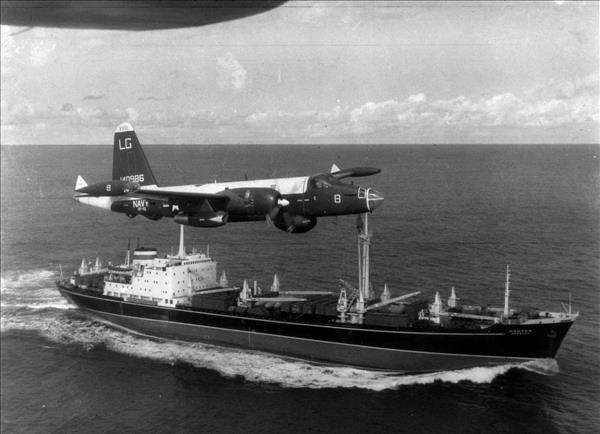(MENAFN- Asia Times) October 16 marks 60 years since the Cuban missile crisis – the 13-day standoff between the United States and the Soviet Union widely regarded as the closest we ever came to global nuclear war. On this anniversary, as we veer terrifyingly close to the brink of Armageddon once again, we should look to that crisis to guide us in resolving our present one.
, US President Joe Biden warned that in the Ukraine war,“for the first time since the Cuban missile crisis, we have a direct threat to the use of nuclear weapons.” The warning is well founded.
Top Kremlin ally Ramzan Kadyrov, head of the Chechen Republic, that Russia should consider“the use of low-yield nuclear weapons.” and echo such suggestions. And Russian President Vladimir Putin that he is willing to use“all means” in the conflict.
It's whether Putin is willing to follow through on his threat. Harvard Kennedy School professor Matthew Bunn pegs the chances at about . But we do know how to reduce the risk of catastrophe. The Cuban missile crisis proved that even in the face of potential nuclear devastation, de-escalation is possible and diplomacy can prevail.
Experts and scholars have relitigated the crisis for decades. But in recent years, archives and memoirs have clarified the picture of what happened during those 13 days starting on October 16, 1962.
The tale is clearly articulated in Gambling with Armageddon, a 2020 book by Pulitzer-winning historian Martin J Sherwin that The New York Times “should become the definitive account” of the event. The book offers urgently relevant lessons, both about the circumstances that can bring humanity to the edge of annihilation and how we can step back from that brink.
One chilling reminder of how crises are sometimes averted was offered by the late US secretary of state Dean Acheson in 1969. Reviewing Thirteen Days, Robert F Kennedy's posthumous memoir, Acheson, who advised then-president John F Kennedy during the Cuba crisis, that nuclear war was averted thanks to“plain dumb luck.”
Sure enough, it has since come to light that a nuclear missile came close to being fired not once but twice – once by the US on Okinawa, Japan, and once by in Cuban waters. In both instances, the resistance of a single individual derailed a launch.
Of course, the world cannot rely on luck alone to prevent nuclear disaster. In 1962, according to political scientist Graham Allison, JFK “between one in three and even.” If Kennedy's assessment was accurate, then after just a few more comparable confrontations,“the likelihood of nuclear war would approach certainty.”
Humanity cannot afford to spin the cylinder again in this game of Russian roulette; we must unload the gun. Our only path forward is de-escalation. And de-escalation, as Sherwin makes clear, begins with dialogue.
During the Cuban missile crisis, people such as General Curtis LeMay argued that negotiation was . But level-headed discussion is essential to avoiding certain doom. To sacrifice it in the name of jingoistic posturing is not just absurd; it's potentially apocalyptic.
As the late ,“The biggest tragedy, as [my military advisers] saw it, was not that our country might be devastated and everything lost, but that the Chinese or the Albanians might accuse us of appeasement or weakness.… What good would it have done me in the last hour of my life to know that though our great nation and the United States were in complete ruins, the national honor of the Soviet Union was intact?”
Today, as the world faces the threat of obliteration once more, figures of all stripes are to prevent doomsday.
A small but growing list of progressive members of the US Congress (along with several peace advocacy organizations) are increasingly focused on how best to promote de-escalation and dialogue, inspired by a truth that Ukrainian President Volodymyr Zelensky has : This war“will only definitively end through diplomacy.”
Pope Francis issued calling for global leaders“to do everything possible to bring an end to the war.”
Even former US secretary of state Henry Kissinger has reiterated the importance of dialogue. As he ,“This has nothing to do with whether one likes Putin or not…. We are dealing, when nuclear weapons become introduced, with a historic alteration in the world system. And a dialogue between Russia and the West is important.”
We cannot waver from the conviction that nuclear weapons must never be used again under any circumstances.
We would be wise at this grave moment to recall the lessons of history – encapsulated in Sherwin's work – and repeat, loudly and often, the November 1985 declaration of US president Ronald Reagan and Russian president Mikhail Gorbachev, restated as recently as January by the leaders of the :“A nuclear war cannot be won and must never be fought.”
This article is distributed by in partnership with .




















Comments
No comment